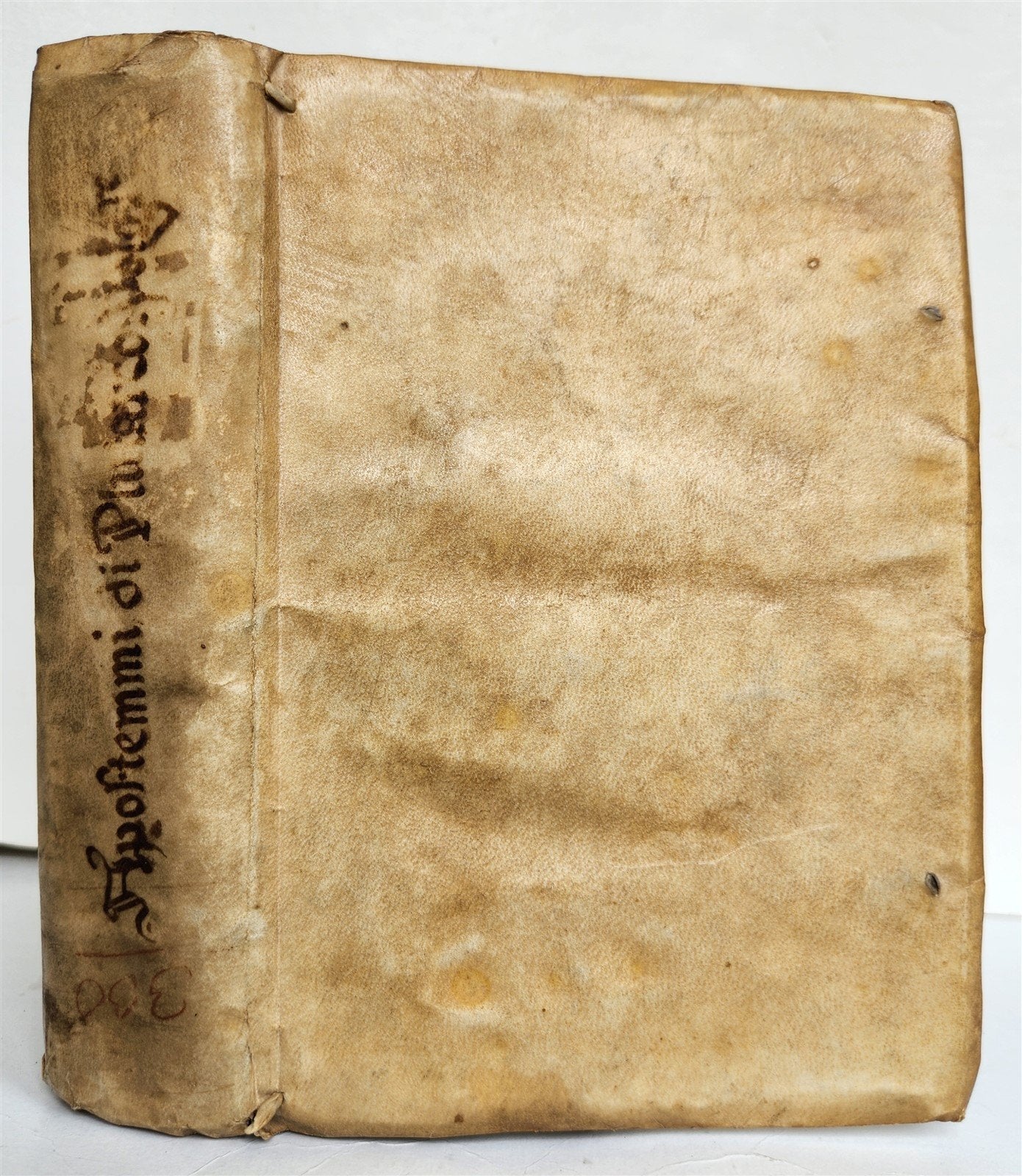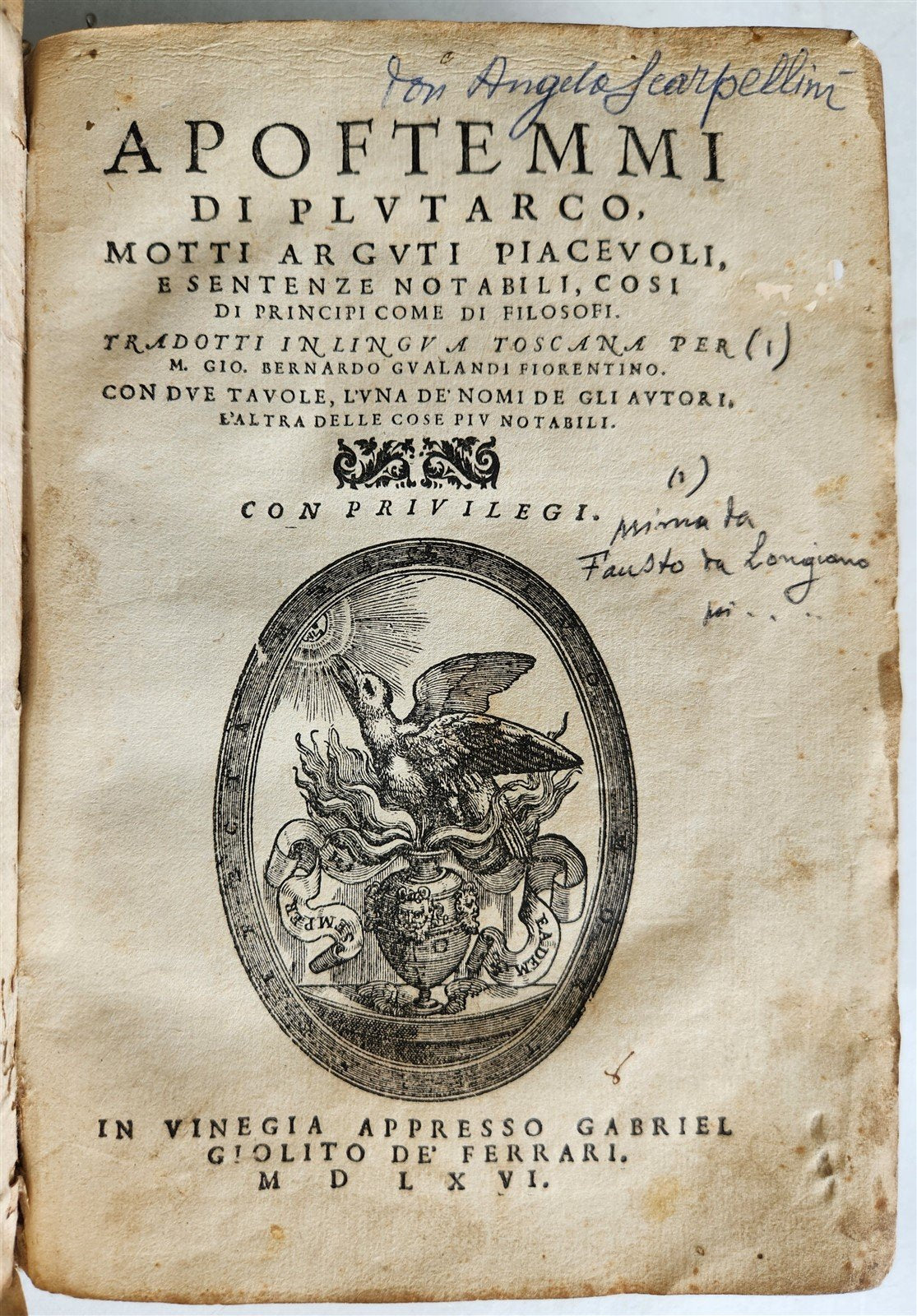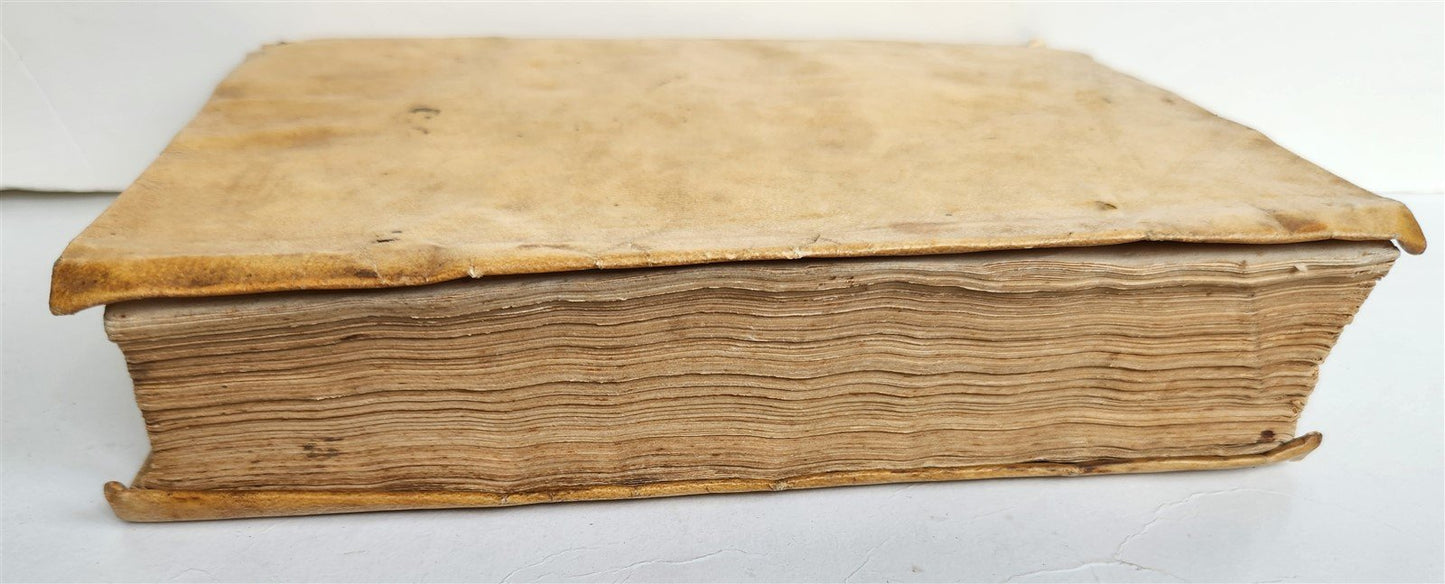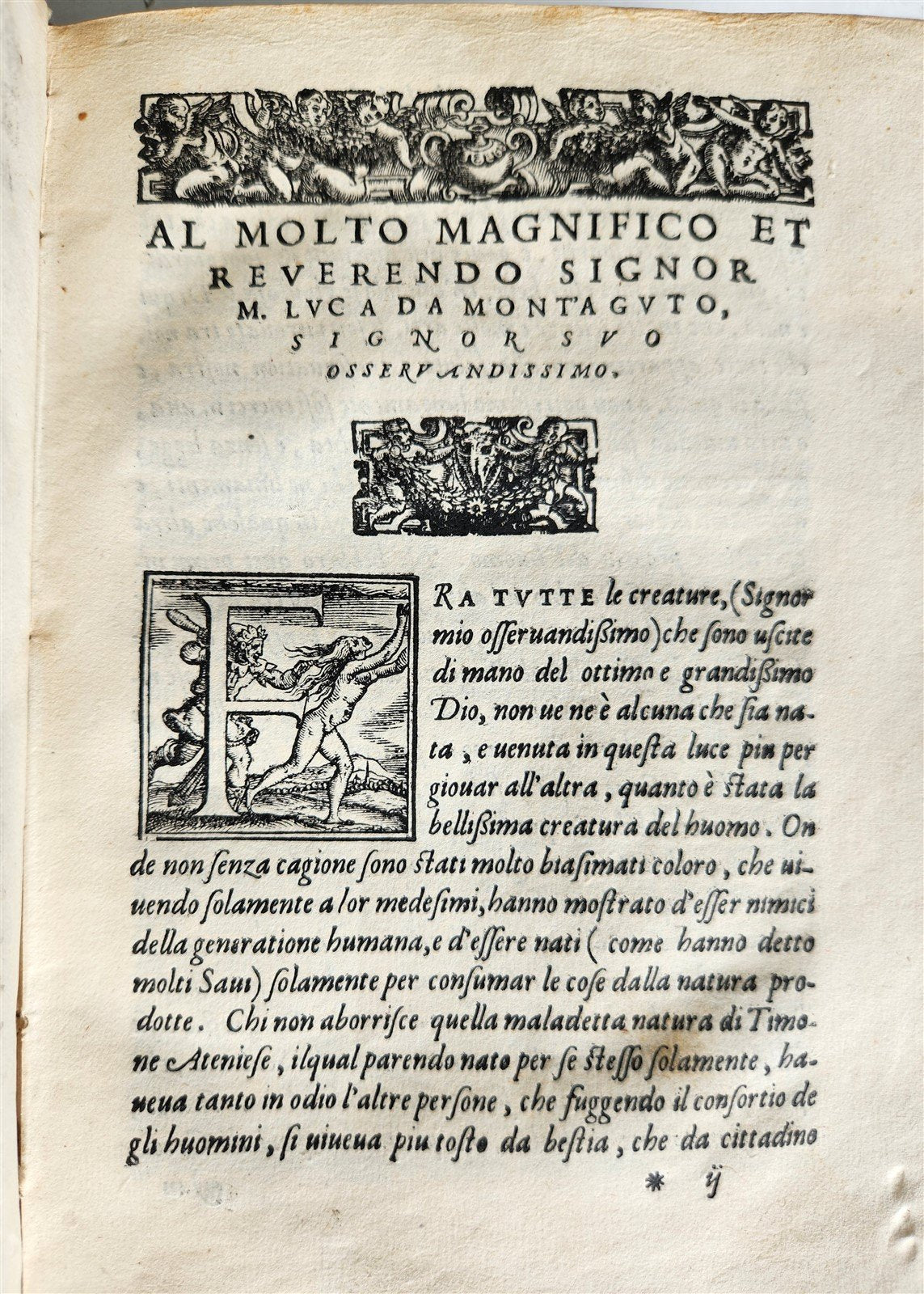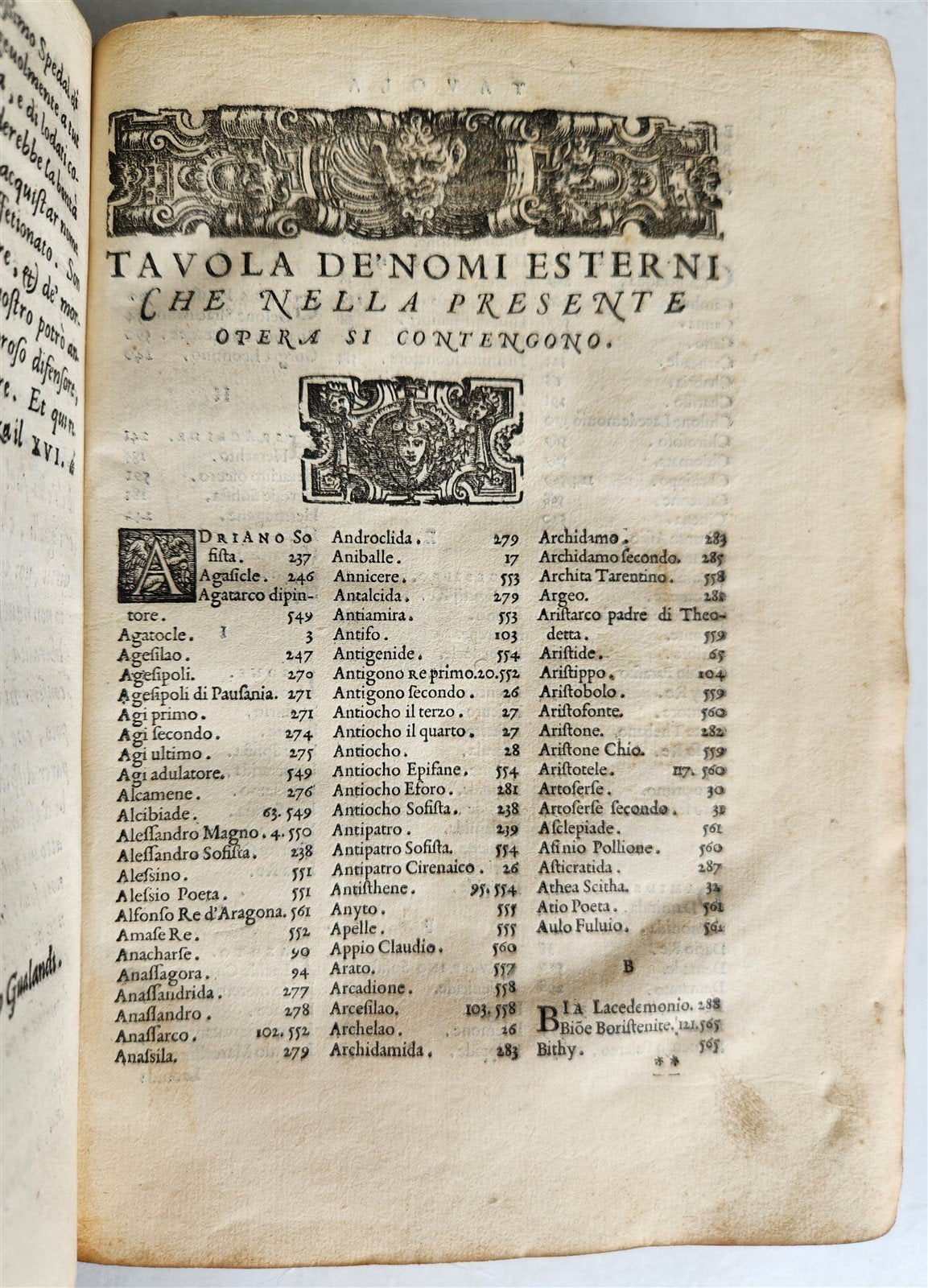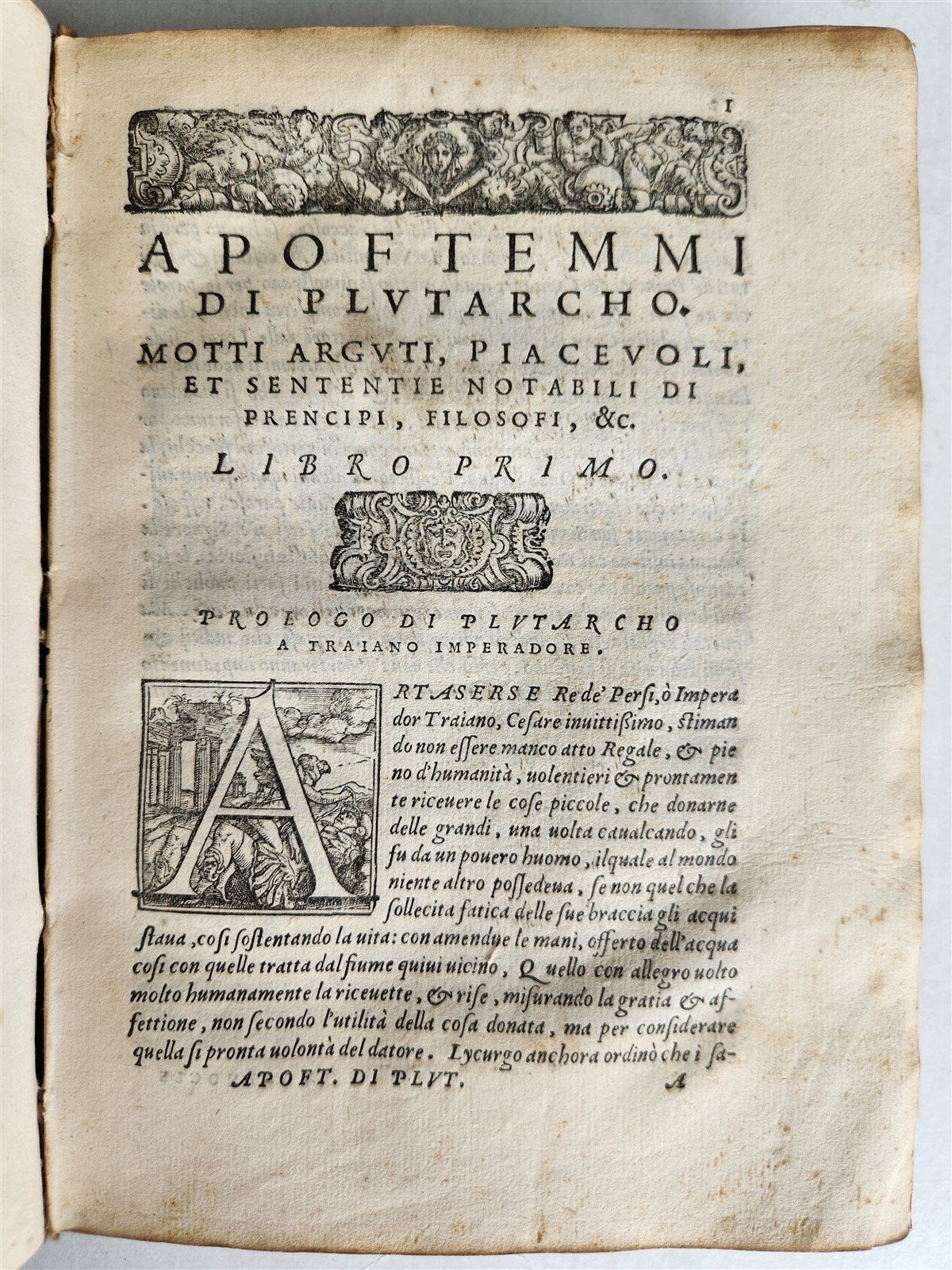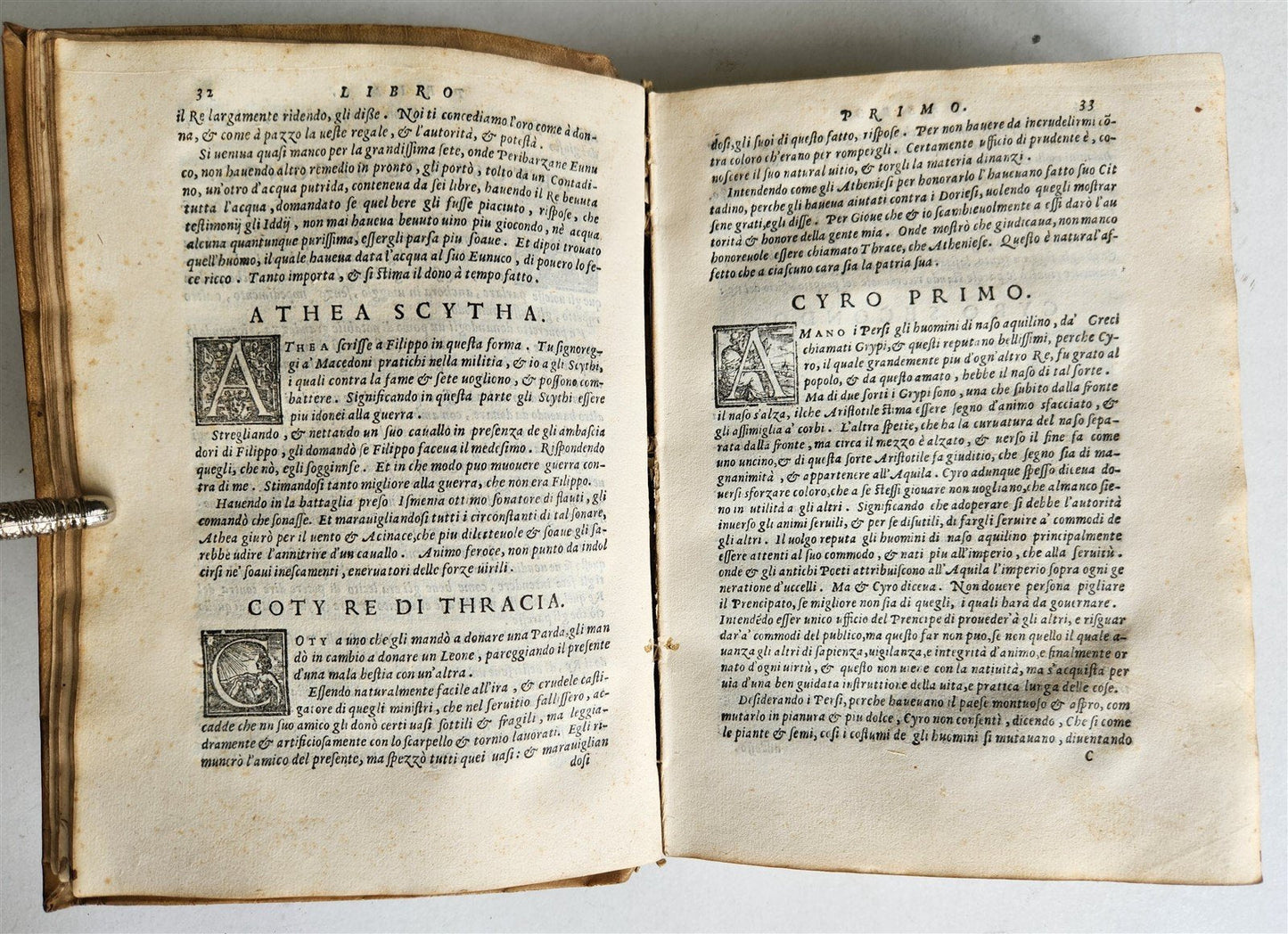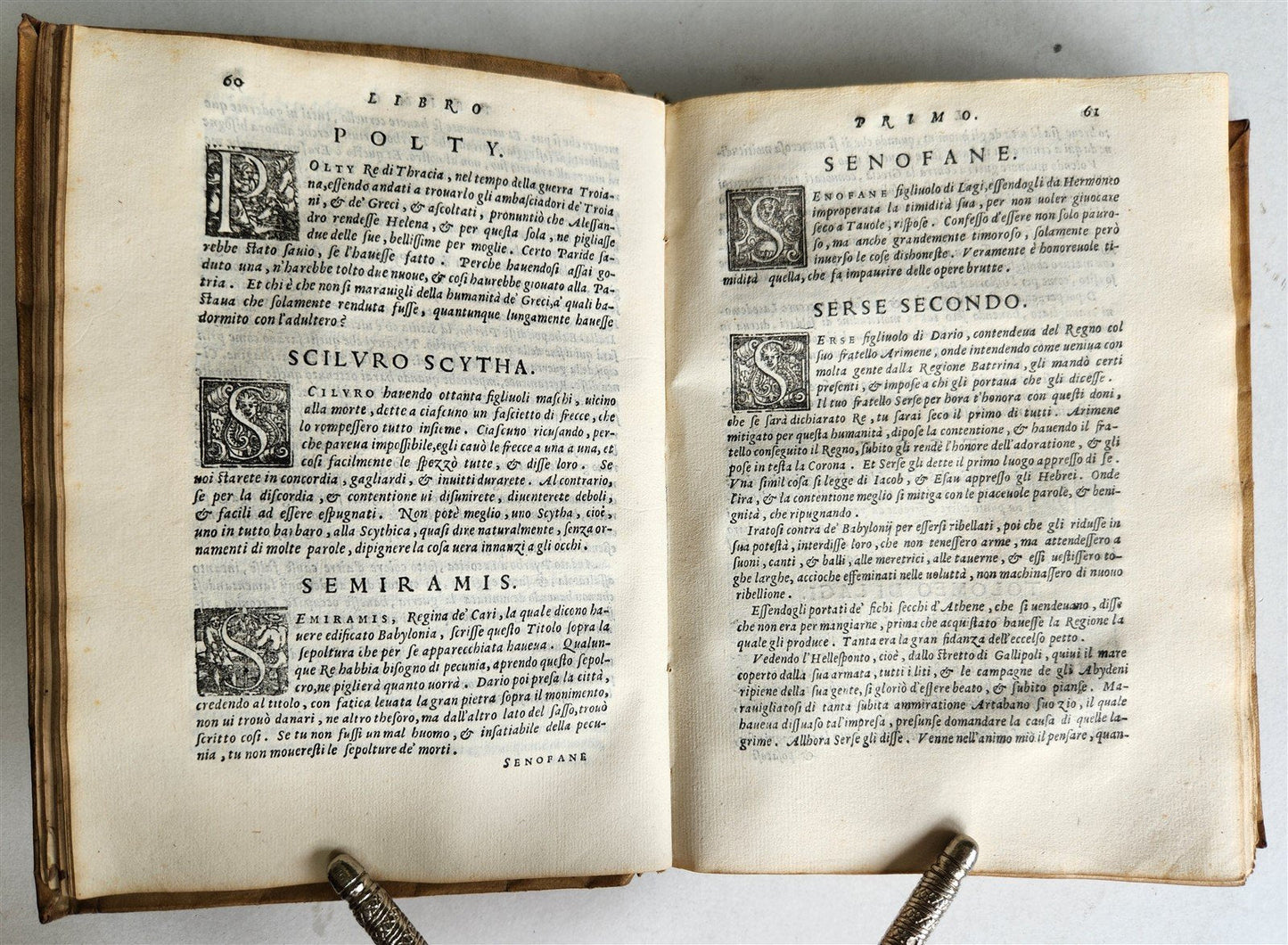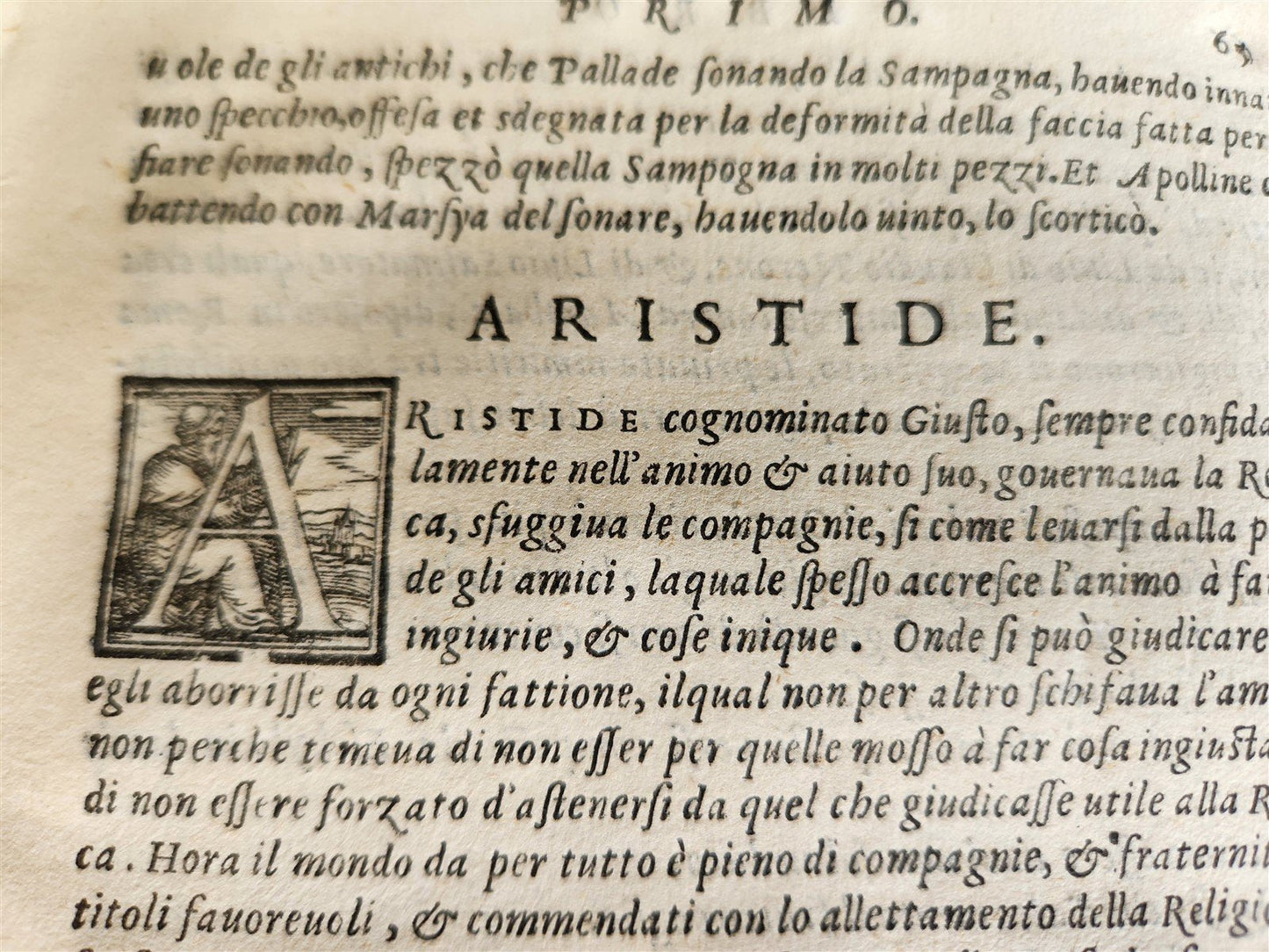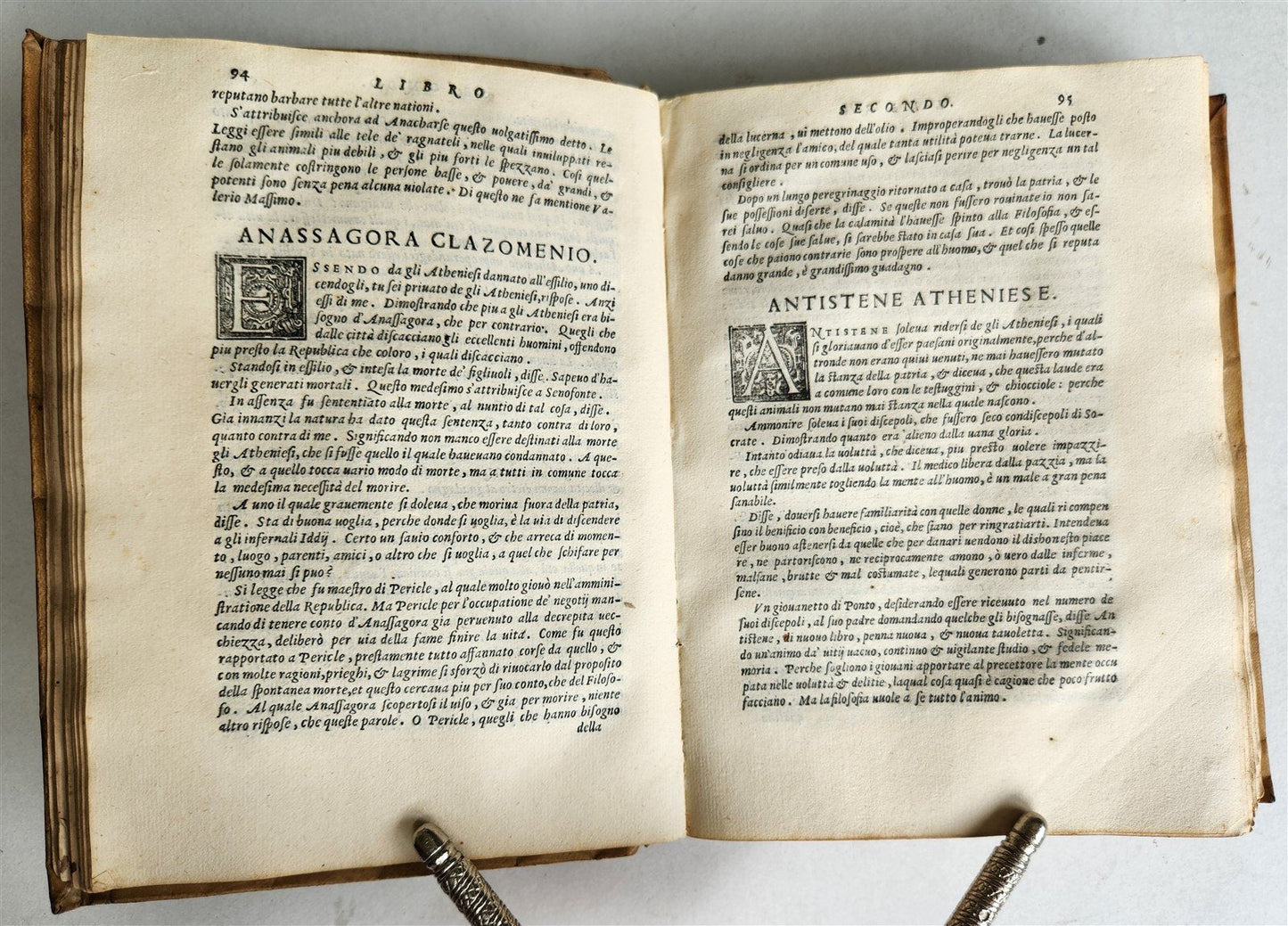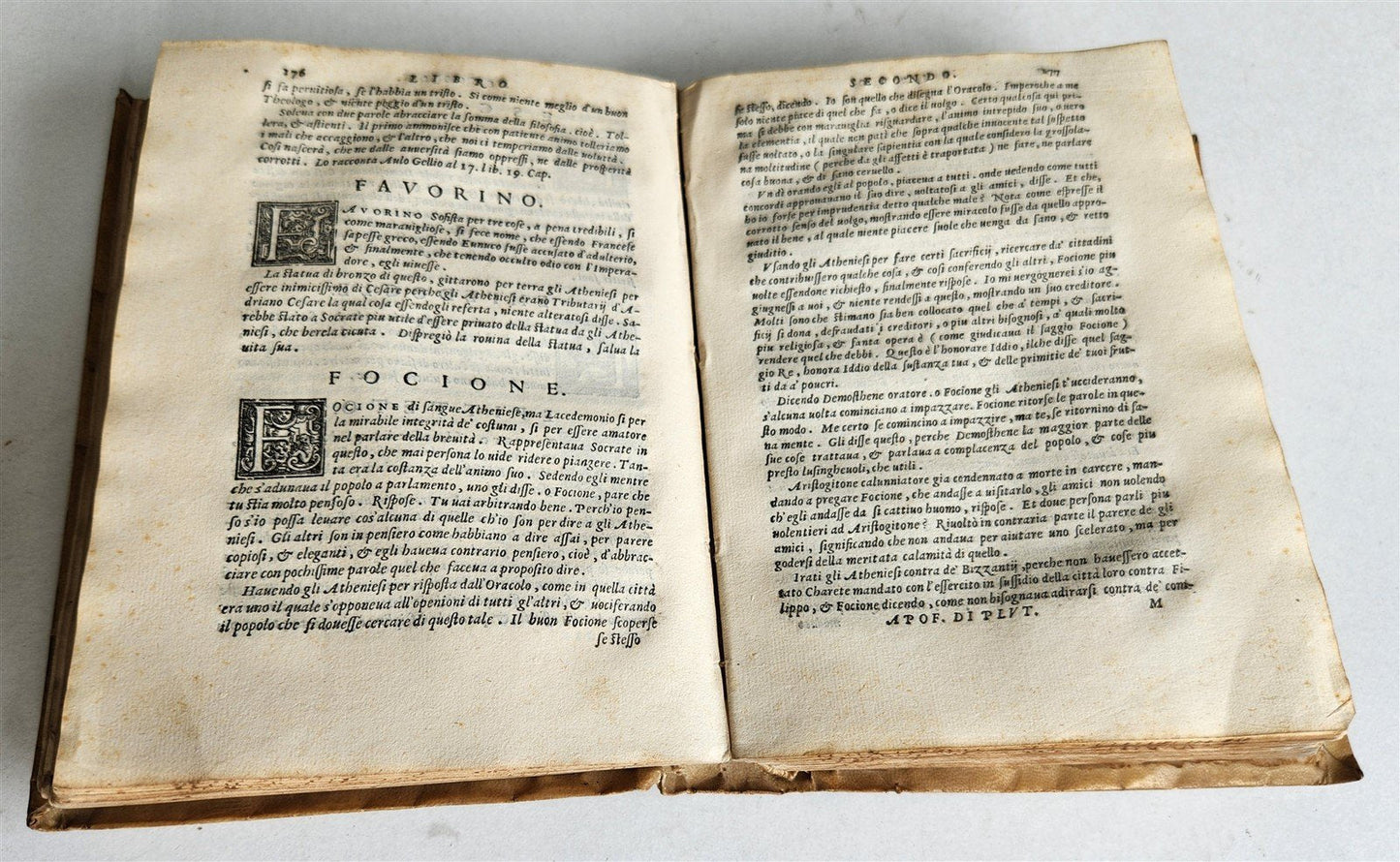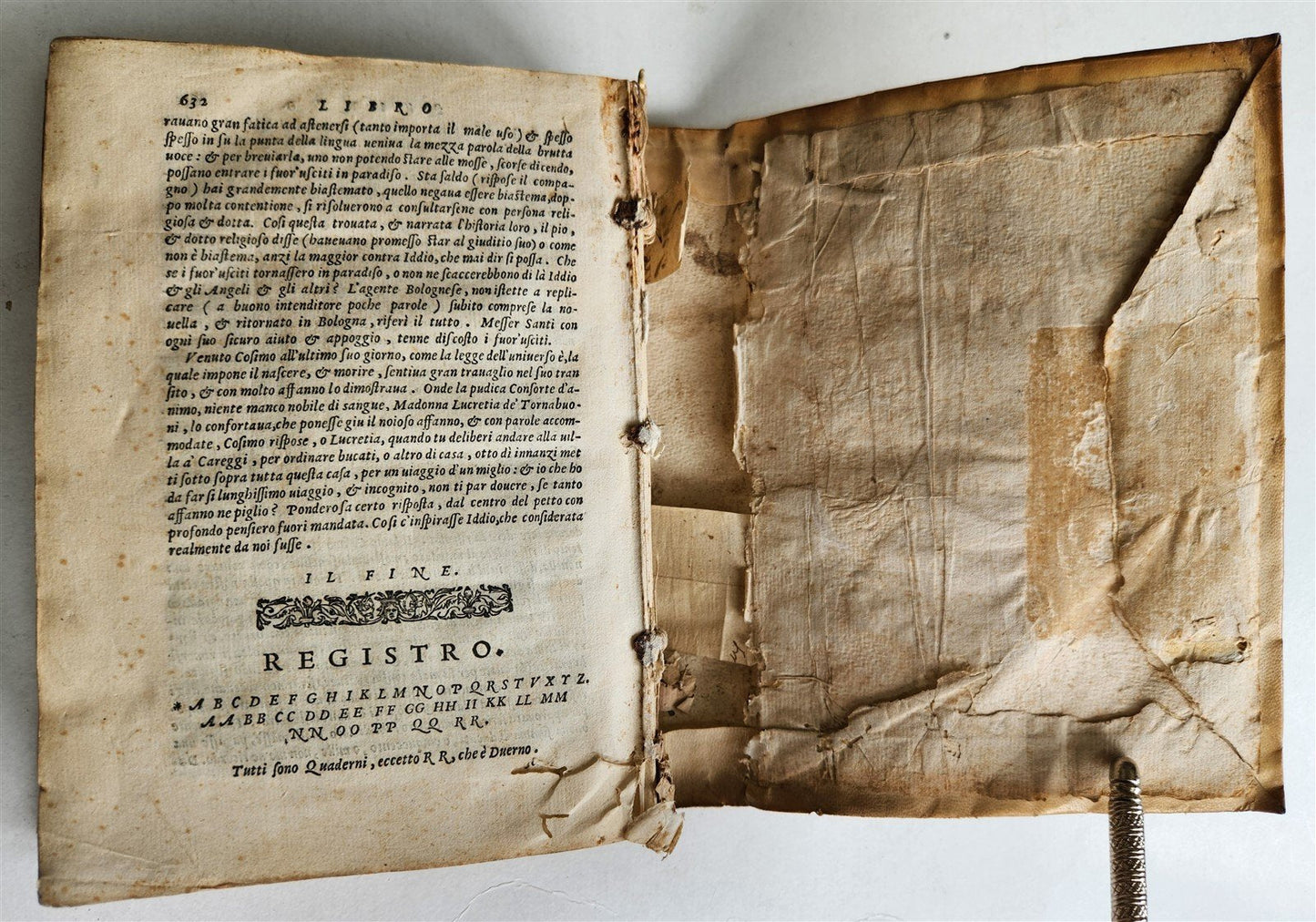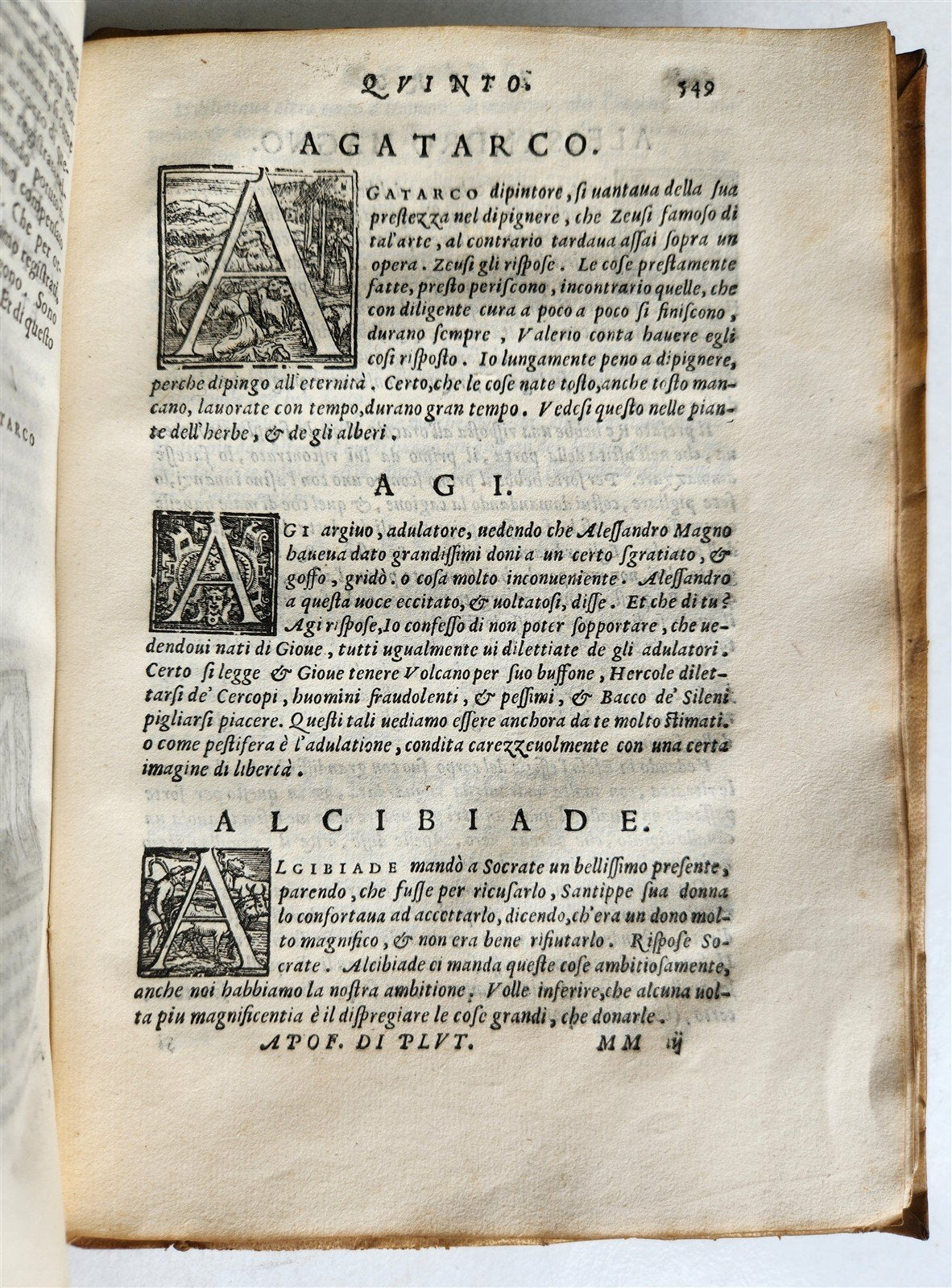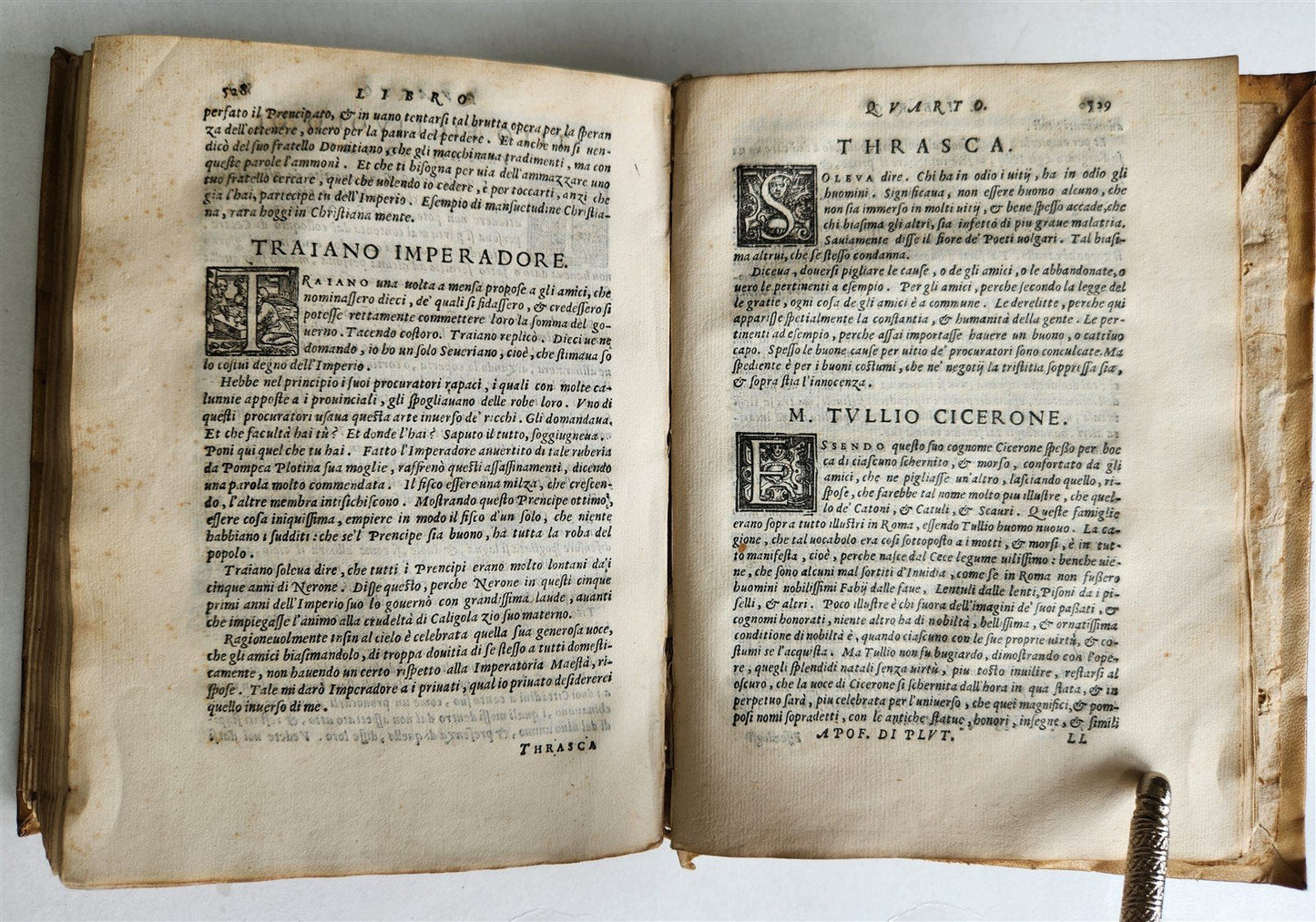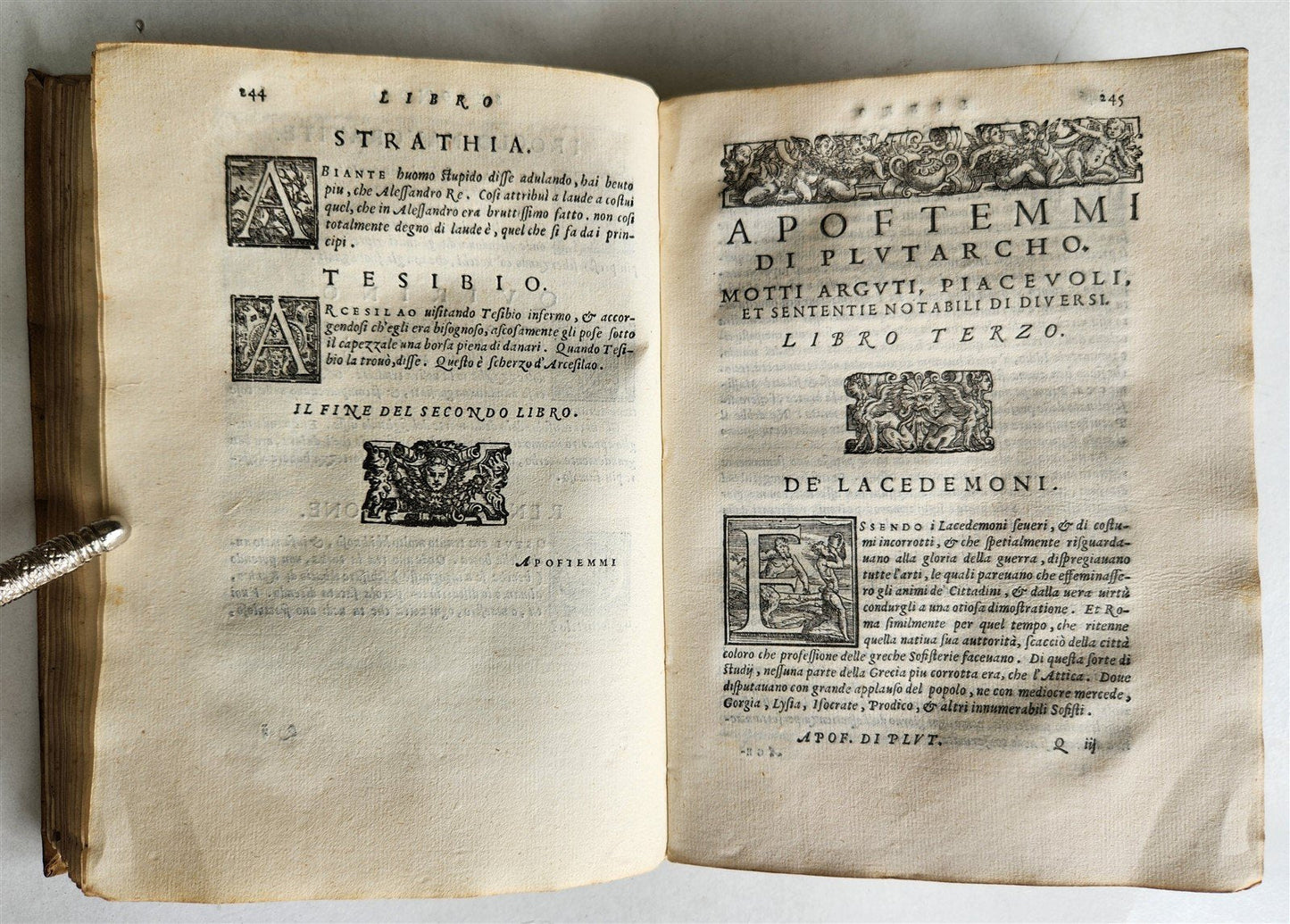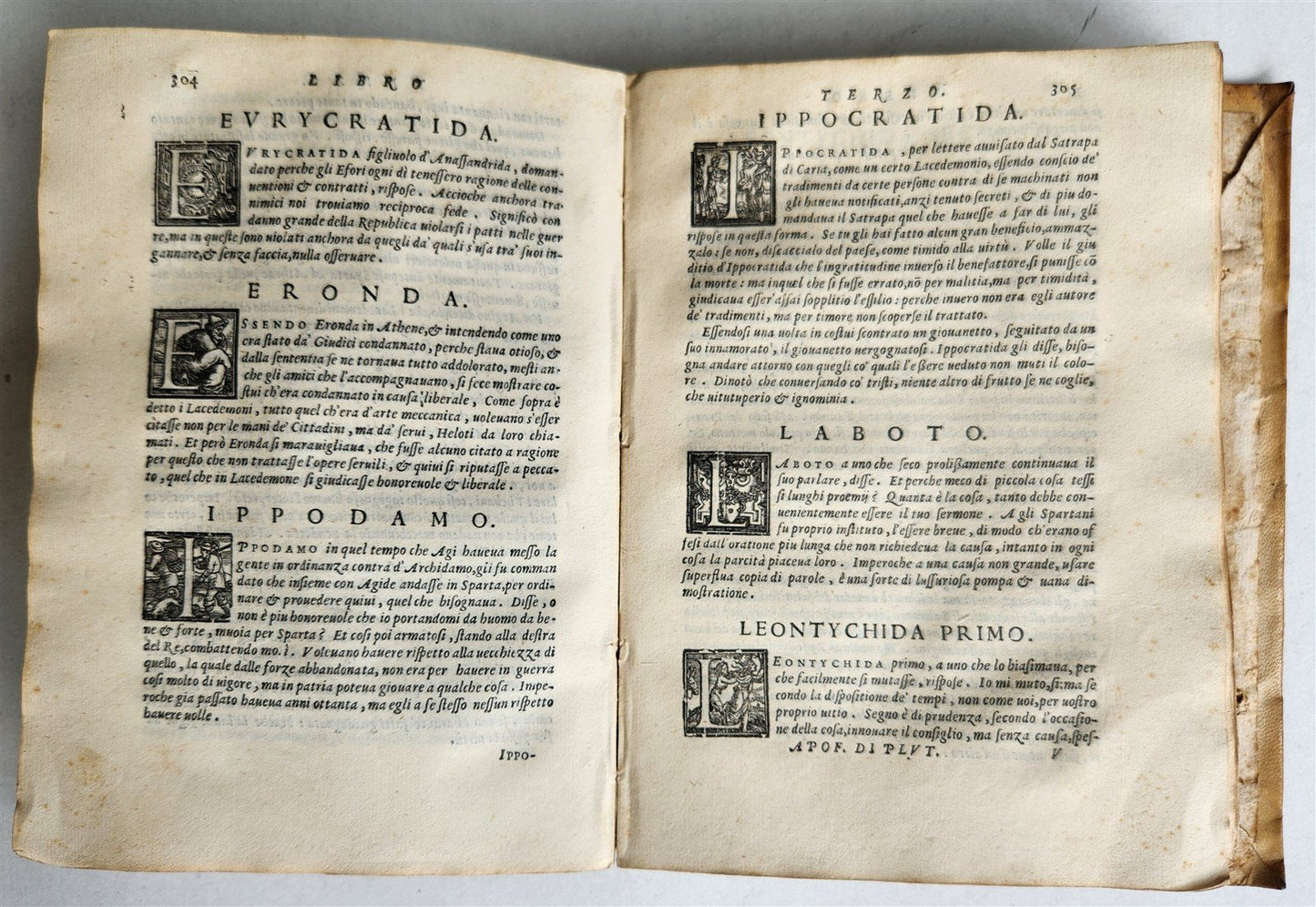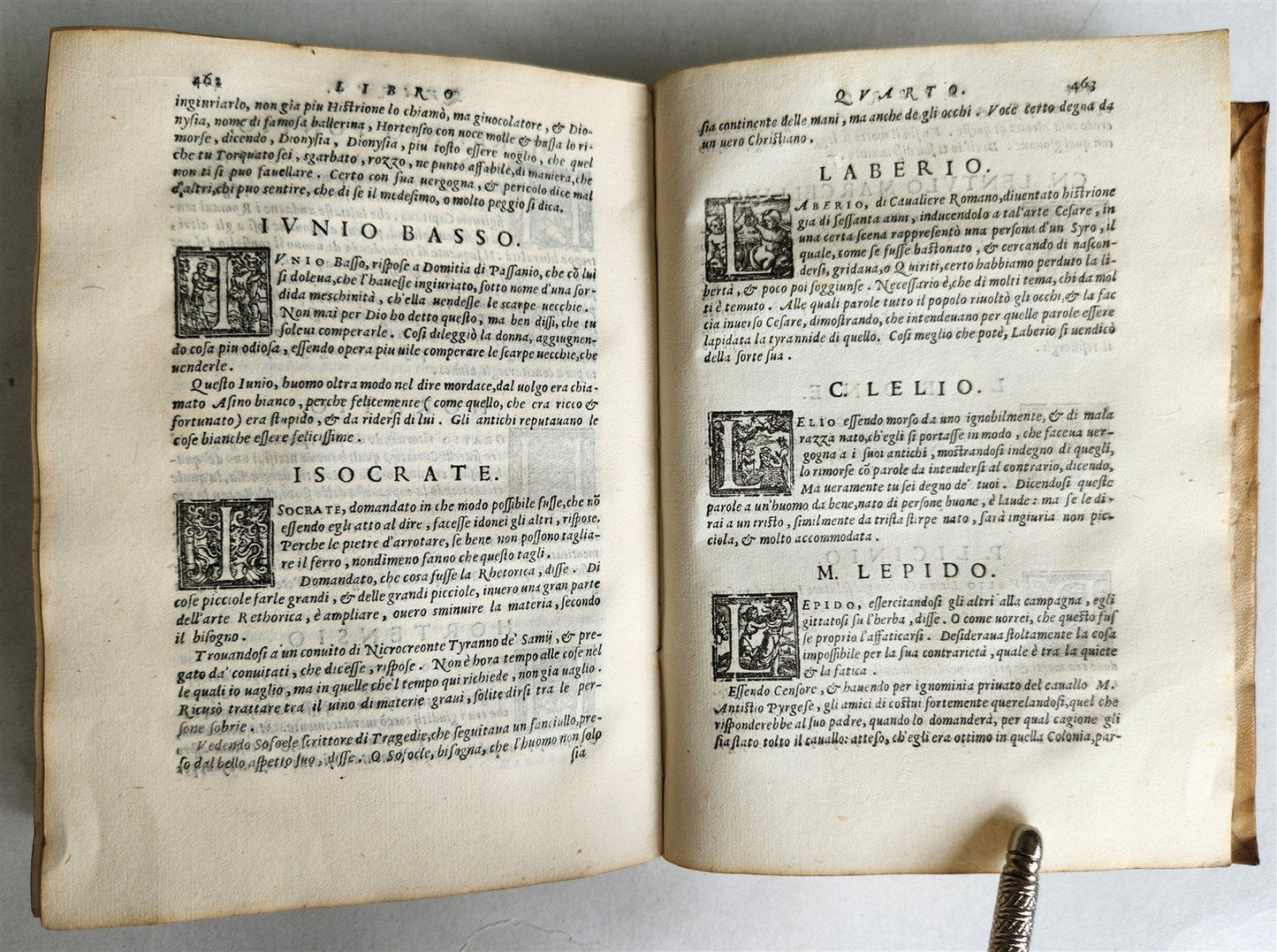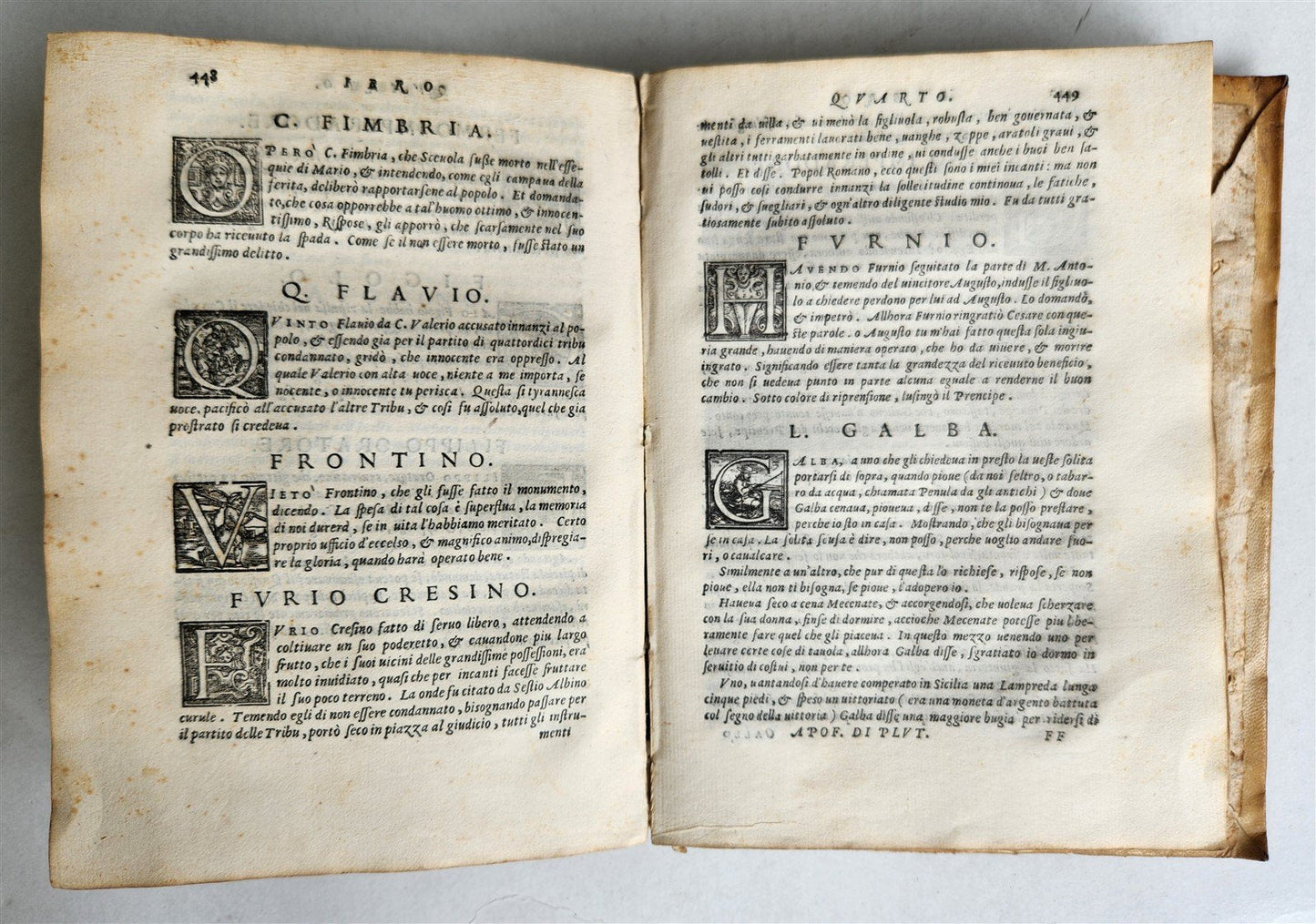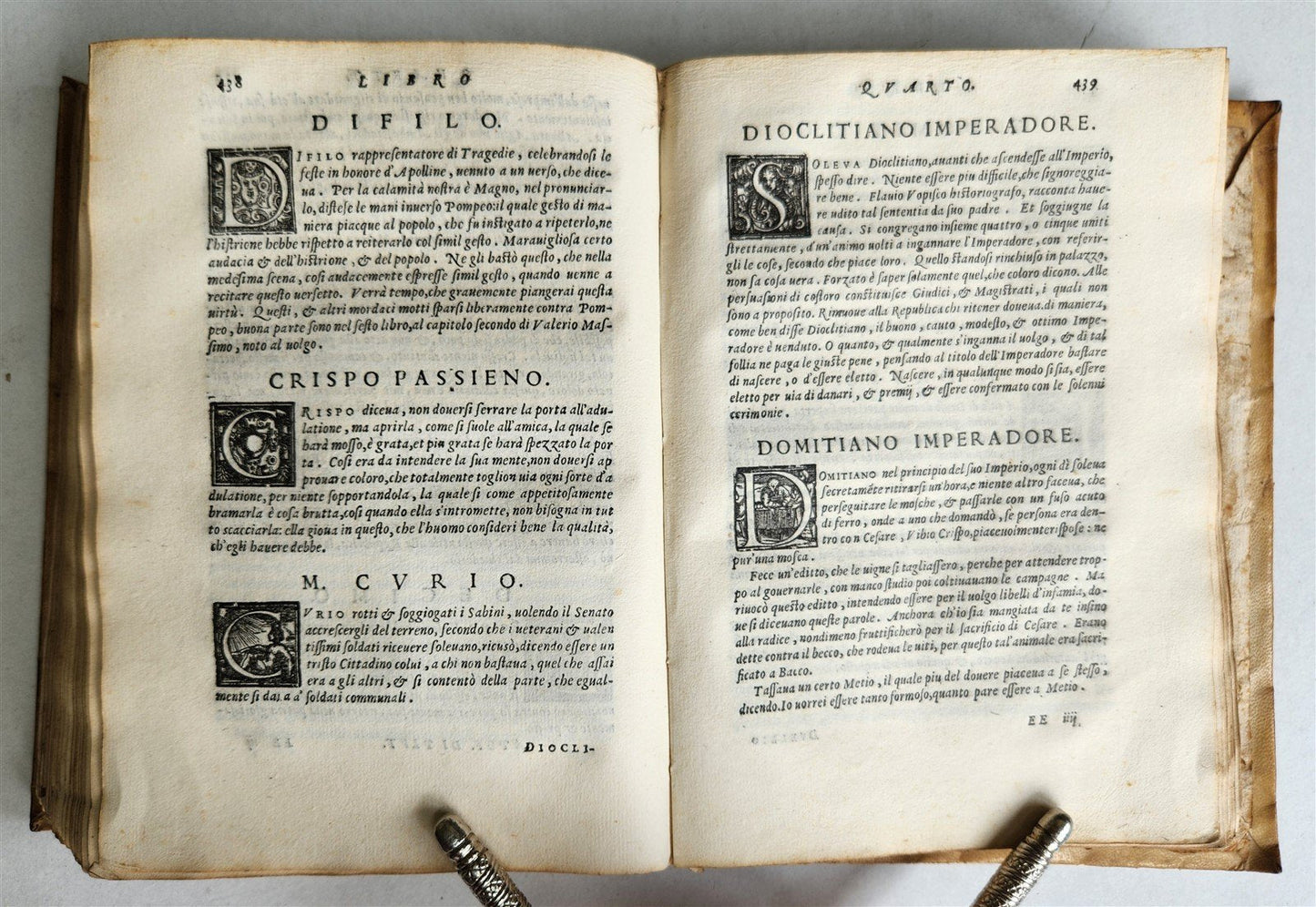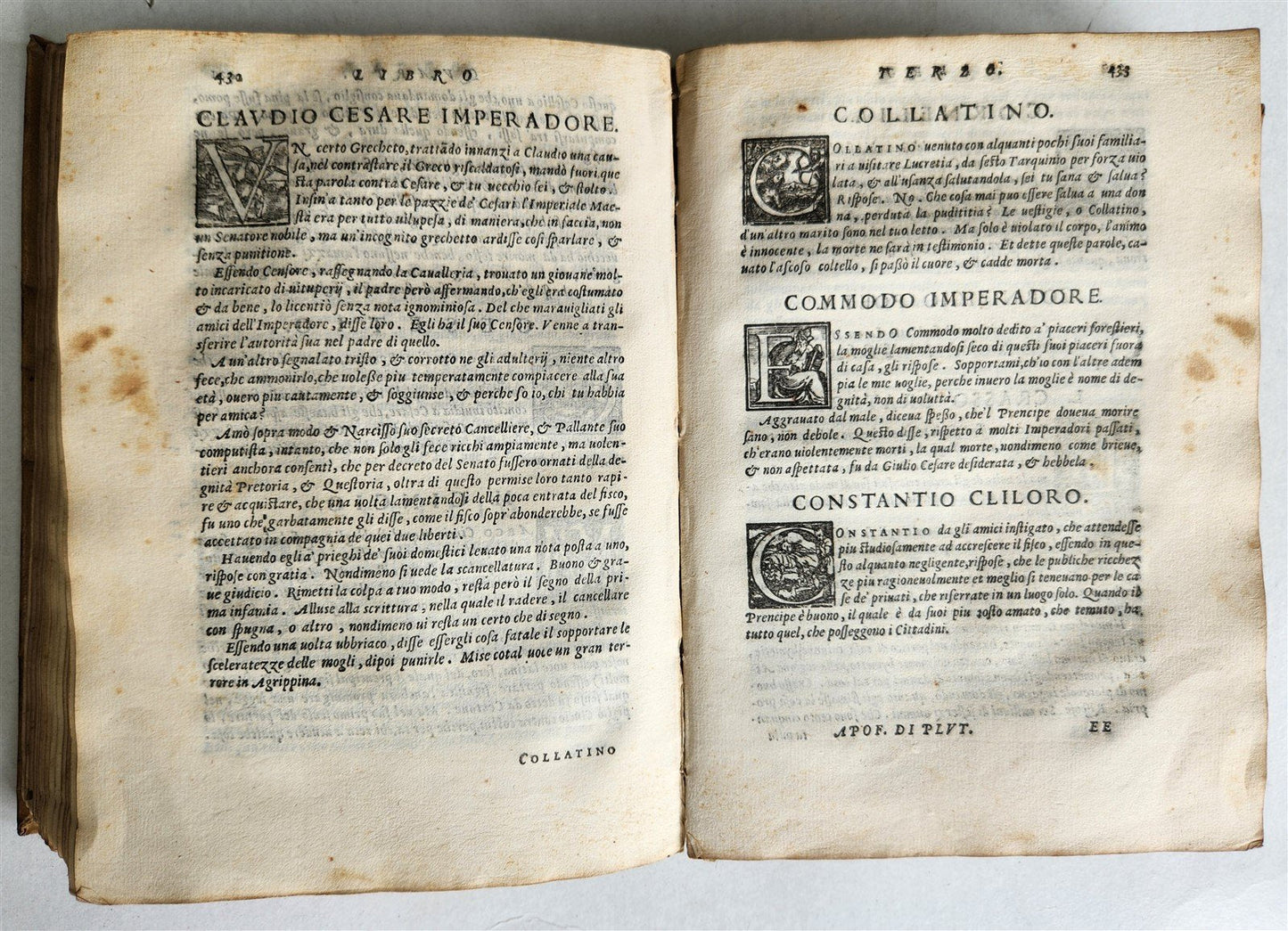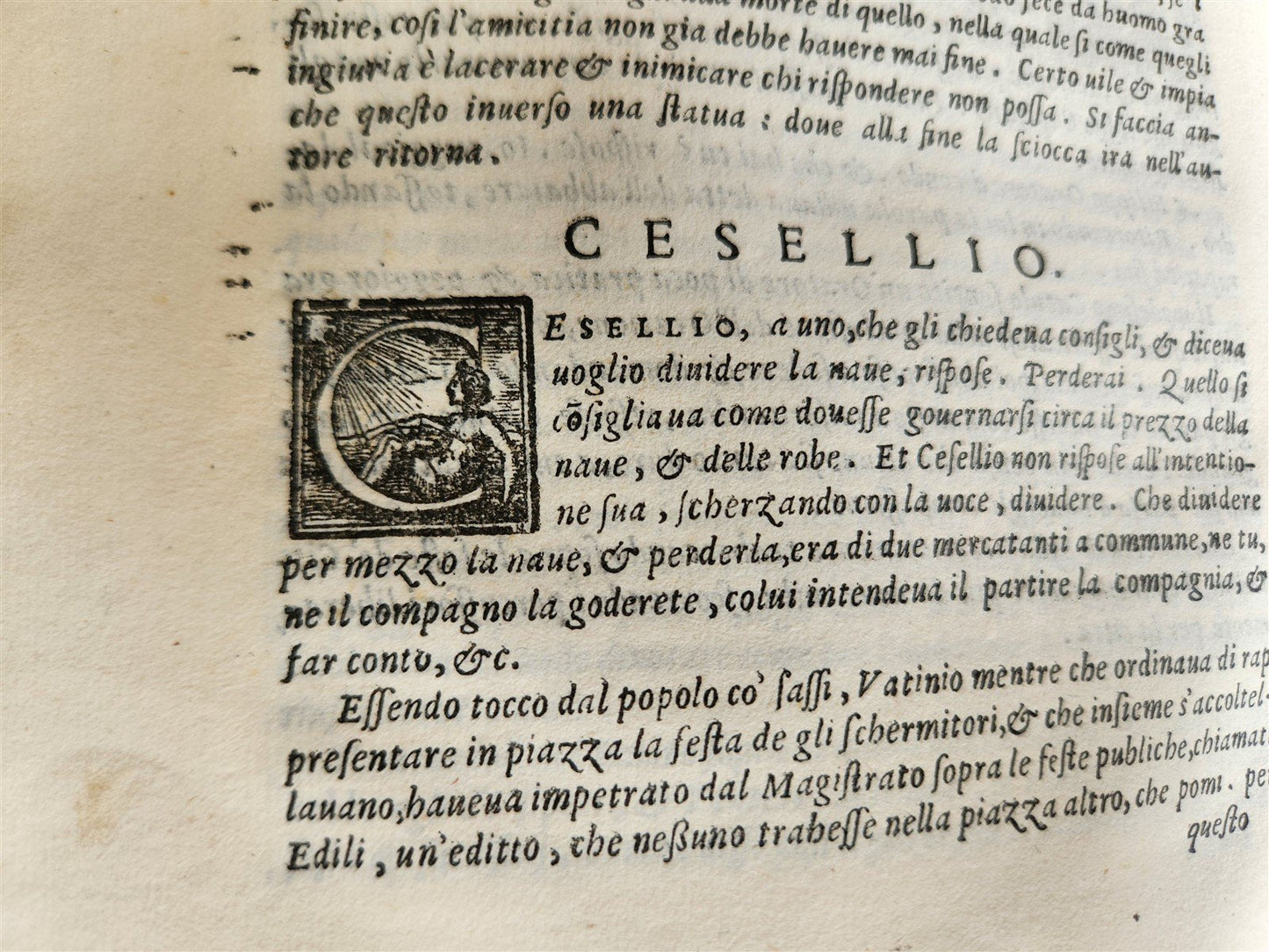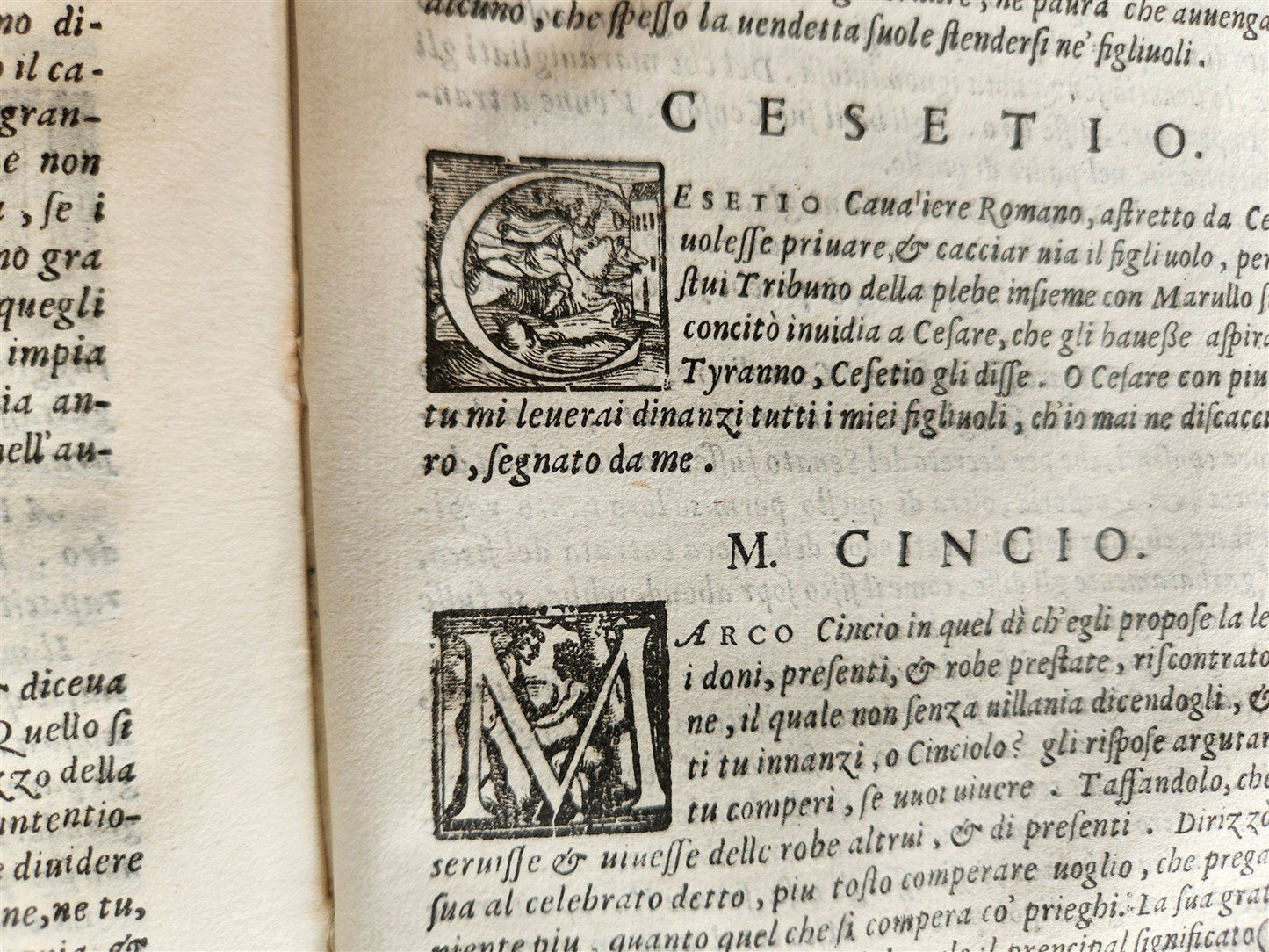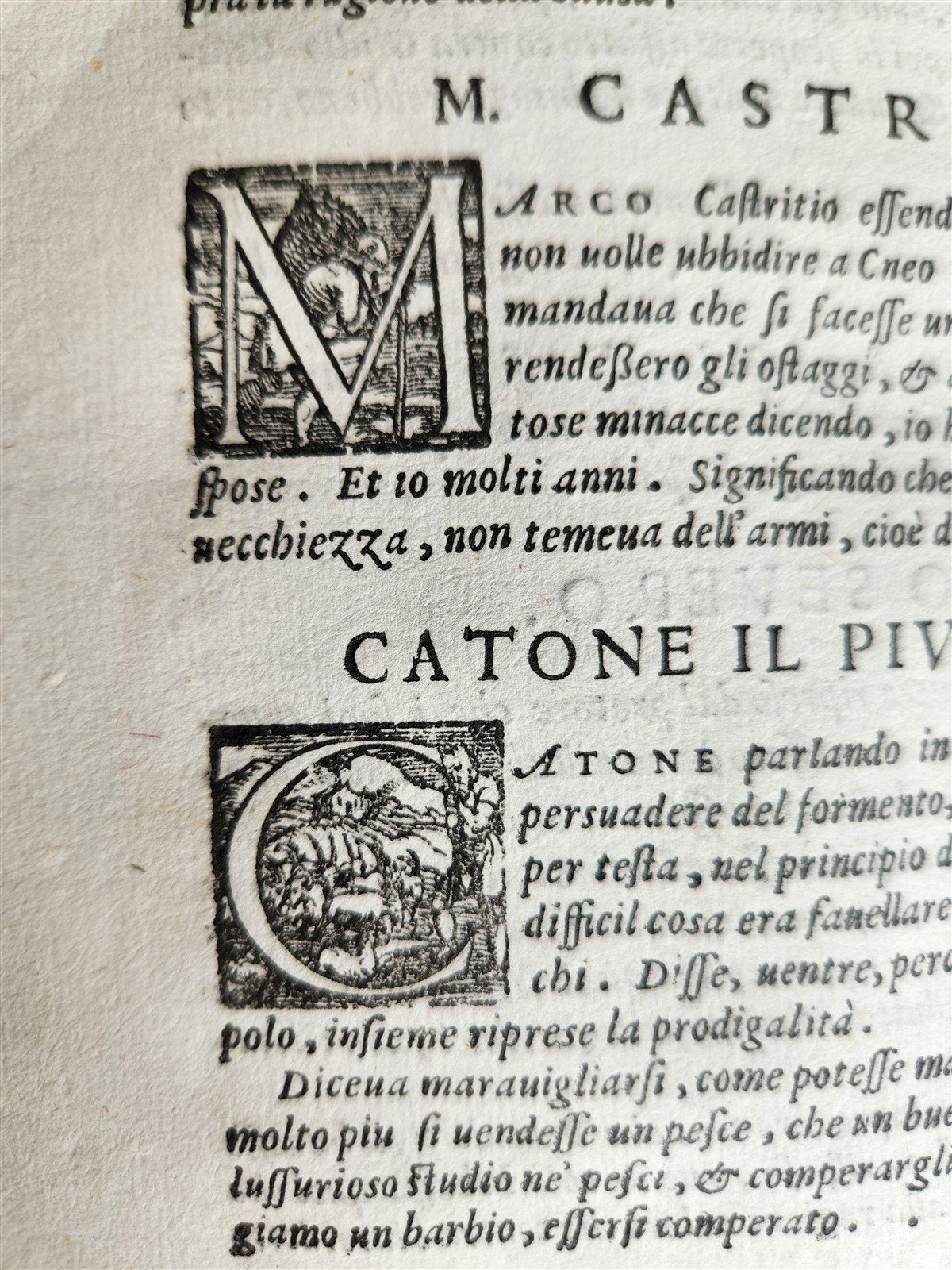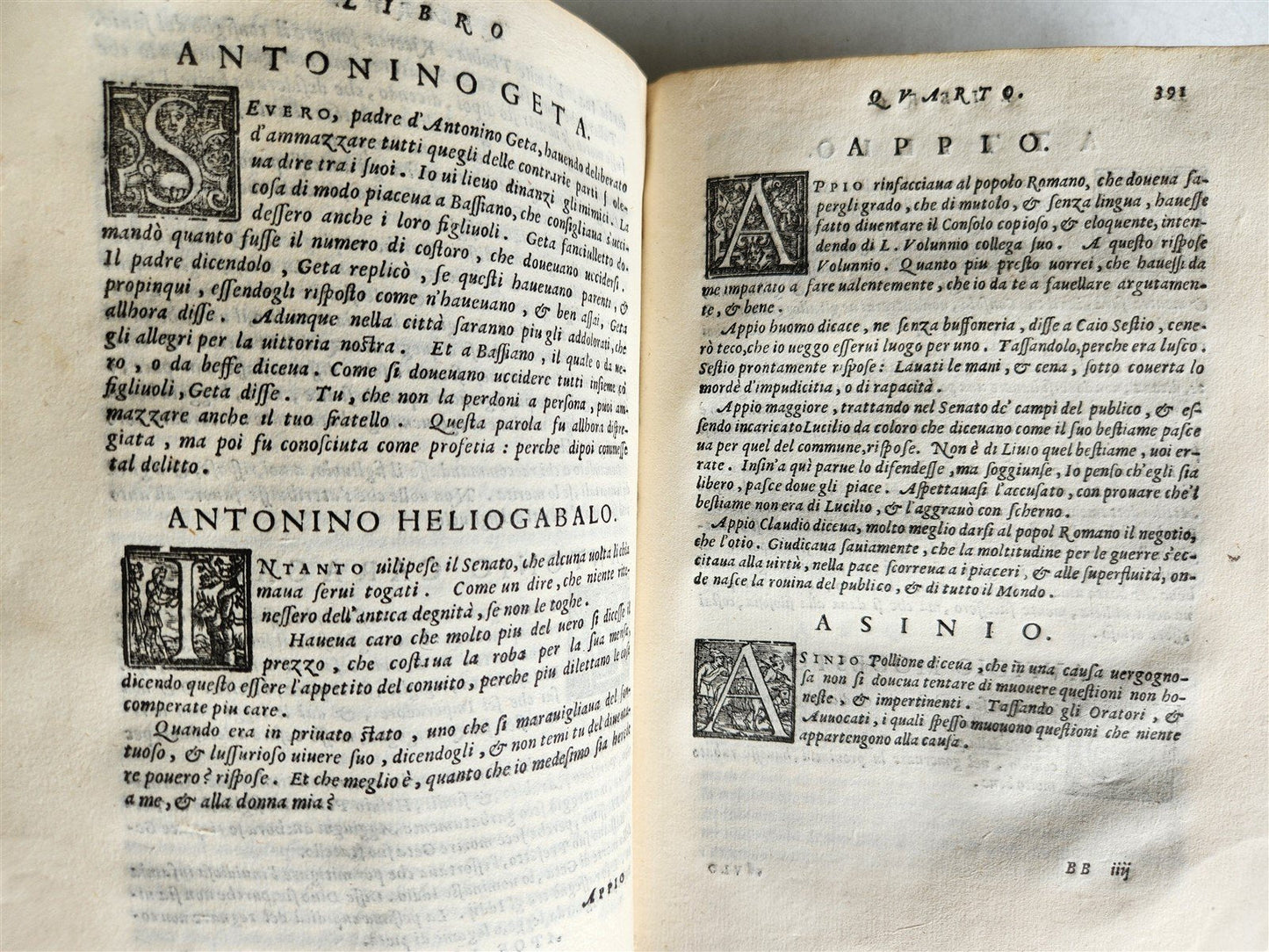Motka
1566 APOPHTHEGMATA by PLUTARCH antique VELLUM BOUND w/ MANUSCRIPT TITLE 16th C.
1566 APOPHTHEGMATA by PLUTARCH antique VELLUM BOUND w/ MANUSCRIPT TITLE 16th C.
Regular price
$589.40 USD
Regular price
$842.00 USD
Sale price
$589.40 USD
Unit price
per
Couldn't load pickup availability
Plutarchus
Apoftemmi [...] motti arguti piacevoli, e sentenze notabili, cosi di principi come di filosofi.
Tradotti in lingua toscana per m. Gio. Bernardo Gualandi fiorentino.
In Vinegia: appresso Gabriel Giolito de' Ferrari, 1566
[28], 632 pp.
Woodcut printer'smark on the title page, numerous woodcut initials in text.
Some small woodworm holes on the title page, without loss, a second small marginal woodworm on the last leaves, otherwise good copy.
Full limp vellum binding with manuscript title on the spine and at the lower edge.
Binding partially detached (back hinge broken).
Lacks ties and endpapers.
Period ownership notes on the title page.
Good edition by Giolito de Ferrari of the Italian translation,
edited by Giovan Bernardo Gualandi, of Plutarch's Apophthegms.
(Bongi II, 208; Gamba, 1584)
Size 6 1/4 by 8 3/4 inches
Text in Italian
=======================================
"Apophthegmata" generally refers to collections of apophthegms, which are concise and pithy sayings or maxims attributed to famous figures from classical antiquity.
Plutarch, the Greek philosopher, historian, and biographer, is particularly known for his collections of apophthegms within his larger work, the Moralia.
These collections include:
Apophthegmata Laconica (Sayings of Spartans):
These are a collection of sayings and maxims attributed to the Spartans, known for their brevity and wit.
Apophthegmata Regum atque Imperatorum
(Sayings of Kings and Commanders):
This collection focuses on the notable sayings of rulers and military leaders from various cultures.
Plutarch, himself an admirer of Spartan virtues, likely compiled the "Apophthegmata Laconica" as source material for his writings, such as the "Parallel Lives", which compares the lives of famous Greeks and Romans.
Many of the sayings in these collections are found within his other works.
The collection of apophthegms from classical antiquity, including those of Plutarch, was a source of inspiration for later writers, such as Erasmus of Rotterdam, who translated Plutarch's "Apophthegmata" into his work, "Apophthegmatum opus".
While valuable for providing insights into the values and thoughts of ancient figures, it's important to remember that Plutarch lived centuries after many of the events and people he described.
Therefore, his accounts should be treated with some caution, as they may reflect the historical perspectives and biases of his time.
==============================
Plutarch (c.?AD 40 – 120s) was a Greek Middle Platonist philosopher, historian, biographer, essayist, and priest at the Temple of Apollo in Delphi.
He is known primarily for his Parallel Lives, a series of biographies of illustrious Greeks and Romans, and Moralia, a collection of essays and speeches.
Upon becoming a Roman citizen, he was possibly named Lucius Mestrius Plutarchus
====================================
Please see my other auctions
Thank You
Refund Policy: We will issue a FULL REFUND, 100% money back if you are not satisfied with your purchase. Items must be returned to us within 20 days in order to receive a refund or replacement. Buyer is responsible for shipping costs.
Topic: Historical
Binding: Vellum
Subject: History
Language: Italian
Original/Facsimile: Original
Year Printed: 1566
